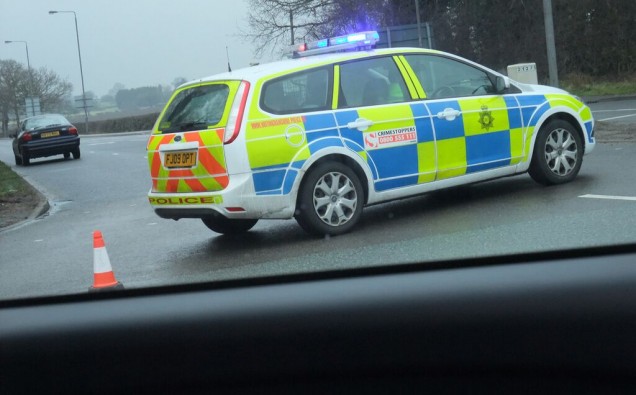A victimless crime? IAM RoadSmart backs police speeding crackdown and calls for drivers to take responsibility for their actions
The UK’s biggest independent road safety charity, IAM RoadSmart, has backed the National Police Chiefs’ Council’s (NPCC) current crackdown on speeding on our roads – saying that there is clear evidence that ‘speed kills.’
The NPCC is encouraging police forces around the country to highlight these dangers in their own areas in the two-week campaign, which started on 14th January.
Neil Greig, IAM RoadSmart director of policy and research, said: “Many people see speeding as a victimless crime – that is total nonsense. Many drivers think they can easily handle the speed they drive, and assume their skills are great enough to handle an emergency. We at IAM RoadSmart would like to ask those people to take a long, hard look at their attitudes and stop kidding themselves they are always safe.”
The latest annual road safety statistics shows that the contributory factor of ‘exceeding speed limit’ was recorded in 203 fatalities, 1,212 serious injuries, and 5,855 slight injuries.
In addition, the figures reported for those who crashed because they were ‘travelling too fast for conditions’ revealed 136 fatalities, 1,327 serious injury collisions and 4,483 slight injury collisions.
Chief Constable Anthony Bangham, NPCC Lead for Roads Policing, said to IAM RoadSmart: “Driving or riding at safe speeds is a key theme of the National Roads Policing Strategy and the speed campaign during January means police forces across the UK will focus on those who are travelling too fast on our roads, putting themselves and others at risk by doing so.
He added: “Respecting the speed limit is fundamental to reducing danger on our roads. Enforcing those limits falls to the police and officers will be doing just that to ensure all road users remain as safe as possible.”
Neil added that in order to reduce the number of people who become victims of speeding motorists, it is essential that all authorities work together to tackle this issue, rather than ad hoc individual measures.
He continued: “If you combine ‘too fast’ with the far bigger numbers of contributory factors attributed to ‘driver or rider error’ and ‘behaviour and experience’ then it is clear that education still has a huge role to play in reducing the toll of death and injury on our roads.”


















